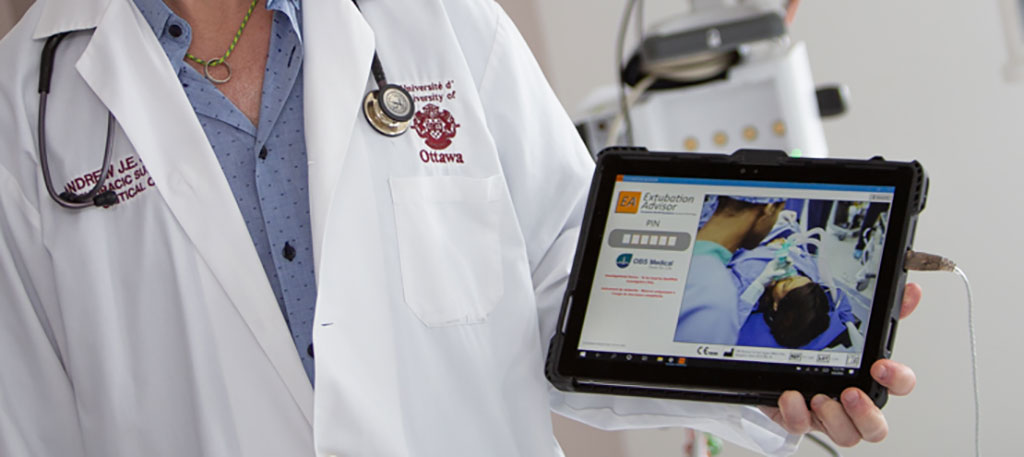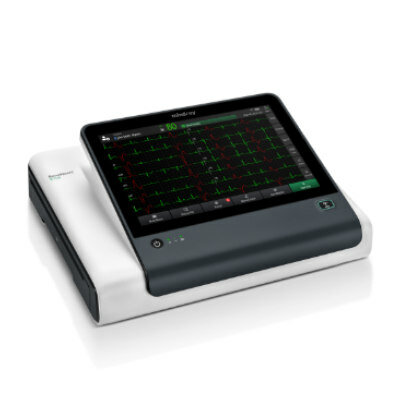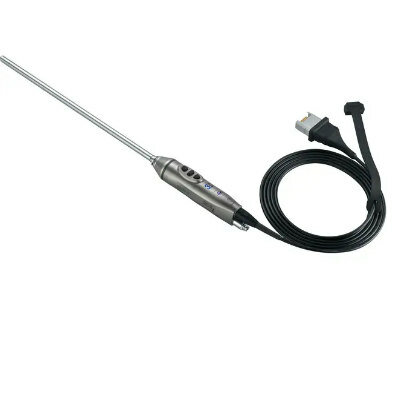AI Device Predicts when Critically Ill Patients Can Be Safely Removed from Ventilator
|
By HospiMedica International staff writers Posted on 01 Jul 2022 |

Over the last two years of the pandemic, more people than ever have experienced extreme difficulty breathing, requiring mechanical ventilation (intubation) in critical care units across the world. A mechanical ventilator is a machine that helps patients breathe when they cannot breathe on their own due to critical illness, such as COVID-19, or surgery. The machine is connected to a breathing tube that is inserted into the patient’s trachea. The process of intubating (inserting the tube) and extubating (removing the tube) is very complex, and anyone requiring ventilation will require months of recovery and rehabilitation to learn how to swallow, eat, talk and breathe again. Currently, there is no patient monitoring equipment to help physicians decide the best time to remove a patient from a ventilator to improve their outcomes, but that may be just about to change.
The Ottawa Hospital (Ontario, Canada) has become the first hospital in the world to evaluate an innovative medical device that uses artificial intelligence (AI) to predict when critically ill patients are ready to breathe on their own. Over the last 13 years, the team that developed the device has made major progress in using complex mathematics, AI and routinely collected vital sign data to predict when patients are ready to be extubated. The device, called the Extubation Advisor, constantly monitors and analyzes a patient’s vital signs, including blood pressure, oxygen levels, breathing rhythms and heart rate during their ventilation. Then, it uses AI to provide doctors with a specific read of when the patient can be safely removed from the ventilator.
This is the first time that real-time predictive analytics based on this type of high-frequency data is being used and evaluated at the bedside. The system was used for three months at the bedside of ventilated patients in The Ottawa Hospital’s Intensive Care Unit (ICU), with permission from their families. After the successful initial evaluation, the metrics are looking promising, and the feedback received from physicians was very positive. The team hopes that the device will help improve patient safety and outcomes in the near future. The team’s next steps include a randomized controlled trial. With each milestone, they are one step closer to transforming care for some of the sickest patients treated at hospitals.
“Currently, one in every seven ICU patients experiences extubation failure. Prolonged ventilation harms patients, and early extubation requiring reintubation can be a devastating blow to their recovery,” said Dr. Andrew Seely, a critical care physician, thoracic surgeon and scientist at The Ottawa Hospital, who developed the device. “We’ve developed the first medical device to offer extubation decision support, which we believe will help standardize and improve care.”
Related Links:
The Ottawa Hospital
Latest Critical Care News
- Handheld Device Could Transform Heart Disease Screening
- Flexible Semi-Autonomous Robot Could Deliver Medicine Inside Body

- Neurorestorative Treatment Strategies Hold Promise for Most Severe Forms of Epilepsy
- Gene Discovery Could Help Grow New Heart Arteries
- Study Discovers Invisible Transmission of Common Hospital-Associated Infection
- Non-Invasive Neuro-Ophthalmology Techniques Could Detect Brain Tumors Earlier
- Mass Manufactured Nanoparticles to Deliver Cancer Drugs Directly to Tumors
- World’s Smallest Pacemaker Fits Inside Syringe Tip

- AI-Powered, Internet-Connected Medical Devices to Revolutionize Healthcare, Finds Study
- Starfish-Inspired Wearable Tech Enables Smarter Heart Monitoring
- AI Eye Scans Could Help Identify Heart Disease and Stroke Risk
- Digital Heart Twin Improves Diagnosis and Treatment of Cardiac Arrhythmias
- First-Of-Its-Kind AI-Powered Probability Scoring System Assesses Heart Failure with Preserved Ejection Fraction
- AI-Assisted Colonoscopy Detects More Polyps but Has Modest Effect on Cancer Risk
- Wearables Could Reduce Need for Continuous Blood Thinners in Patients with Atrial Fibrillation
- AI Model Provides Real-Time Sepsis Risk Alerts for Improving ICU Patient Survival
Channels
Surgical Techniques
view channel
New Transcatheter Valve Found Safe and Effective for Treating Aortic Regurgitation
Aortic regurgitation is a condition in which the aortic valve does not close properly, allowing blood to flow backward into the left ventricle. This results in decreased blood flow from the heart to the... Read more
Minimally Invasive Valve Repair Reduces Hospitalizations in Severe Tricuspid Regurgitation Patients
The tricuspid valve is one of the four heart valves, responsible for regulating blood flow from the right atrium (the heart's upper-right chamber) to the right ventricle (the lower-right chamber).... Read morePatient Care
view channel
Portable Biosensor Platform to Reduce Hospital-Acquired Infections
Approximately 4 million patients in the European Union acquire healthcare-associated infections (HAIs) or nosocomial infections each year, with around 37,000 deaths directly resulting from these infections,... Read moreFirst-Of-Its-Kind Portable Germicidal Light Technology Disinfects High-Touch Clinical Surfaces in Seconds
Reducing healthcare-acquired infections (HAIs) remains a pressing issue within global healthcare systems. In the United States alone, 1.7 million patients contract HAIs annually, leading to approximately... Read more
Surgical Capacity Optimization Solution Helps Hospitals Boost OR Utilization
An innovative solution has the capability to transform surgical capacity utilization by targeting the root cause of surgical block time inefficiencies. Fujitsu Limited’s (Tokyo, Japan) Surgical Capacity... Read more
Game-Changing Innovation in Surgical Instrument Sterilization Significantly Improves OR Throughput
A groundbreaking innovation enables hospitals to significantly improve instrument processing time and throughput in operating rooms (ORs) and sterile processing departments. Turbett Surgical, Inc.... Read moreHealth IT
view channel
Printable Molecule-Selective Nanoparticles Enable Mass Production of Wearable Biosensors
The future of medicine is likely to focus on the personalization of healthcare—understanding exactly what an individual requires and delivering the appropriate combination of nutrients, metabolites, and... Read more
Smartwatches Could Detect Congestive Heart Failure
Diagnosing congestive heart failure (CHF) typically requires expensive and time-consuming imaging techniques like echocardiography, also known as cardiac ultrasound. Previously, detecting CHF by analyzing... Read moreBusiness
view channel
Expanded Collaboration to Transform OR Technology Through AI and Automation
The expansion of an existing collaboration between three leading companies aims to develop artificial intelligence (AI)-driven solutions for smart operating rooms with sophisticated monitoring and automation.... Read more


















